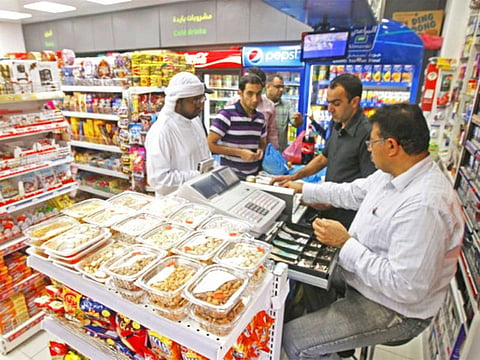What UAE retailers must do when applying new sugar-based tax on sweetened drinks, FTA explains
Businesses must get certificates for sugar, sweetener content before new excise tax: FTA

Dubai: The Federal Tax Authority (FTA) has asked companies that produce, import, or store sweetened drinks to start reviewing the sugar content of their products. The move prepares businesses for a new excise tax system that will link tax rates to how much sugar a drink contains.
The new model, called the “Tiered Volumetric Model,” will be introduced in early 2026 once the final legislation is issued. Instead of applying a fixed rate, the tax will vary based on the amount of sugar or sweeteners per 100 millilitres of drink.
Businesses urged to act early
The FTA advised companies to apply for an Accredited Conformity Certificate from the Ministry of Industry and Advanced Technology (MoIAT). This certificate confirms how much sugar or sweetener a product contains, based on a test from an approved laboratory.
Producers, importers, and stockpilers must obtain this certificate to register their drinks as excise goods. Products without certification will be treated as high-sugar drinks until lab results prove otherwise.
The FTA said early preparation will ensure a smooth transition once the rules take effect. Companies can find full details about the new tax mechanism on the Federal Tax Authority’s website.
How new model works
Under the new system, drinks will be taxed according to their sugar and sweetener levels:
High-sugar drinks: 8g or more per 100ml
Moderate-sugar drinks: between 5g and 8g per 100ml
Low-sugar drinks: less than 5g per 100ml
Artificially sweetened drinks: 0% tax if no added sugar is used
The FTA explained that the tax will apply to any product containing added sugar or sweeteners — including concentrates, powders, gels, or extracts that can be mixed into a drink. Drinks with only natural sugars and no added sweeteners will not be taxed.
The new system will replace the current approach that taxes carbonated drinks as a separate category. Instead, all drinks will be assessed under the same framework. Energy drinks will continue to be taxed at 100% of the excise price.
Certification process
To obtain the conformity certificate, companies must submit laboratory reports from accredited facilities recognised by national or international standards, such as the Emirates National Accreditation System (ENAS) or laboratories certified under ISO/IEC 17025.
Applications can be made online through a simplified process on the MoIAT platform. The certificate will list the total sugar content — including natural, added, and artificial sweeteners — and state whether the drink contains artificial ingredients.
Transition, compliance
The FTA published a Public Clarification in September explaining the planned changes and the rationale behind the new model. The clarification is available on the FTA website.
Officials said the Authority aims to give businesses enough time to adjust production and update records before the new rules take effect. The goal is to support compliance and avoid disruption when the tax model begins in 2026.
The Federal Tax Authority said it will continue working with government partners and the private sector to raise awareness and help businesses adapt smoothly to the upcoming system.
Sign up for the Daily Briefing
Get the latest news and updates straight to your inbox


